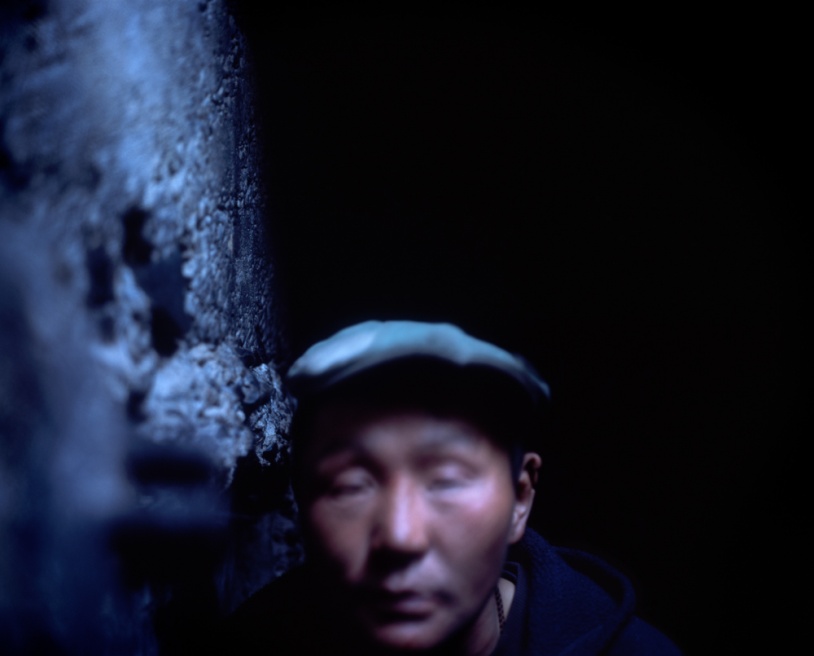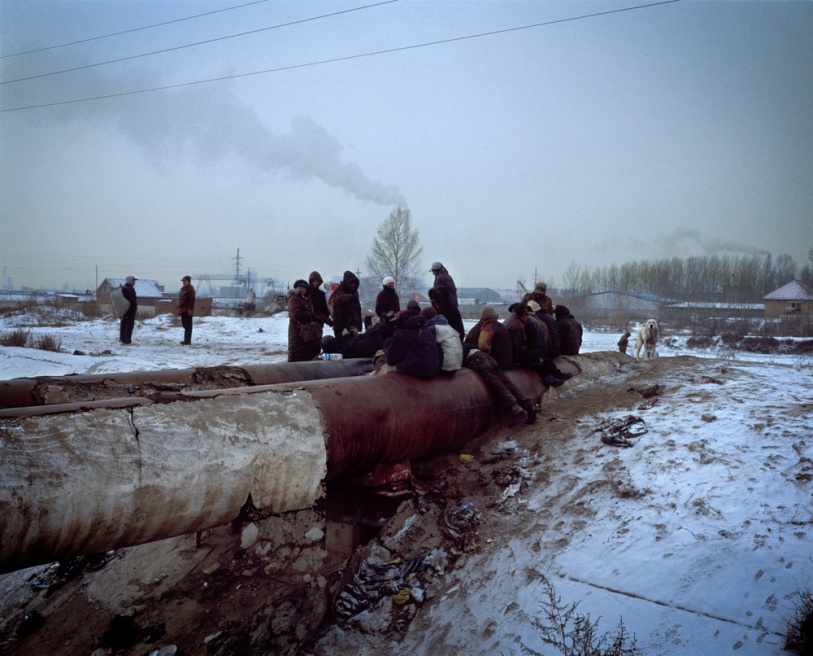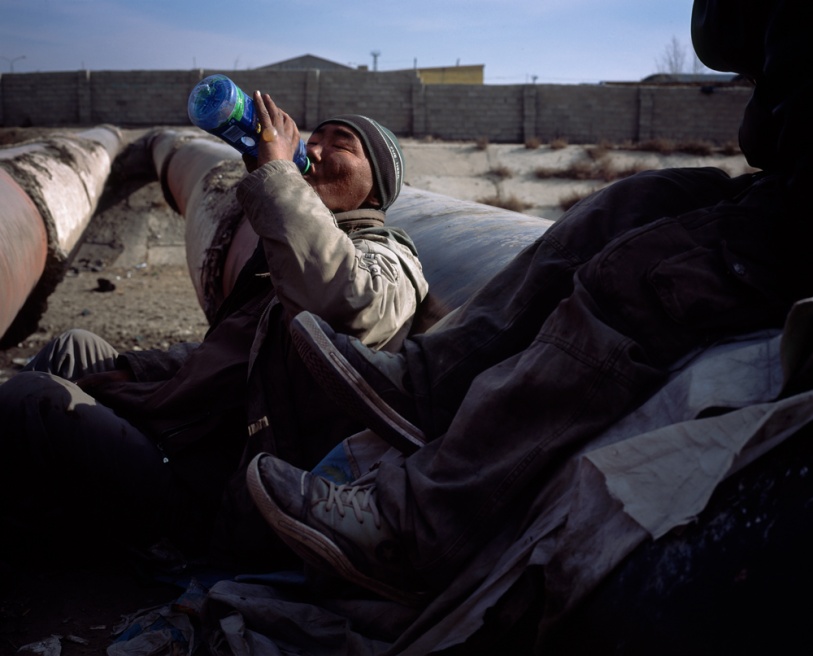Mongolia holds numerous records related to the consumption of alcohol, among them having the most alcoholic population in the world. According to the information published by the Center of Mental Health and Narcotics (CMHN) of Ulan Bator, 22 percent of the Mongolian males between 15 and 65 are addicted to the alcohol, which is equivalent to the fourth of its masculine population. Some of these people end up losing the control of their lives in a progressive deterioration and degradation of their social relationships and skills until they loose everything they have, even their families, ending up living as a homeless in the street. Unfortunately, so far nothing exceptional, but taking into an account that the average temperature during the long Mongolian winter, which goes from November to March, is -20 degrees Celsius, thing gets much worse.
I arrived to Mongolia with the only goal of finding out how these homeless people do to deal with such an adverse weather conditions. And that's how I knew about how they seek shelter amongst the network of underground hot water pipes of the capital, Ulan Bator. Left to their fait, the life of these people happens out of the rest of the citizens and their only worry is to obtain the base of alcohol of 96º that, paradoxically, gives them life and, at the same time, steals it to them.
The alcoholic homeless of Ulan Bator are totally helpless and, in general, are perceived as evildoers, lazy people and without any will to get off the gutter by the other citizens, and not as sick people or, even less, as a victims of the brutal socio-economical restructuring that suffered the country with the fall of the Soviet block at the beginning of the 90s. In fact, the majority of the people have stopped considering them humans, turning them into dangerous beasts from whom must to keep as far as possible.
The government lacks any program focused for their rehabilitation. Very on the contrary, the only method for the control of the population of these individuals is their detention and forced internment in the penitentiary and rehabilitation center of Maaint, 100 km from Ulan Bator. In spite of its proved inefficiency, these persons are retained there against their will from 6 to 24 months.
The body of this personal work, still unpublished, that I present to FotoVisura Grant was made thanks to another photojournalism grant -Fotopres- given by La Caixa Foundation (Spain).



































